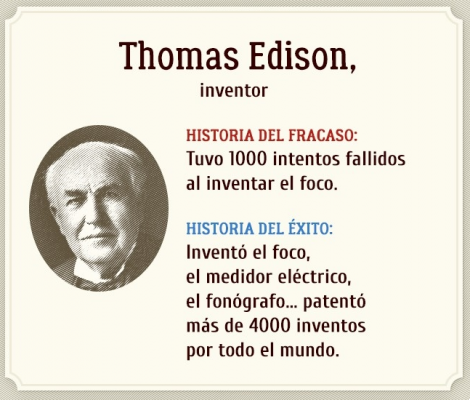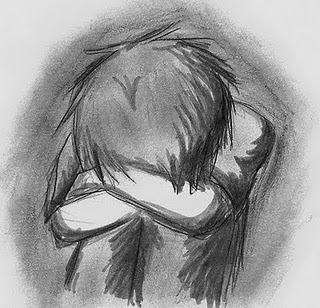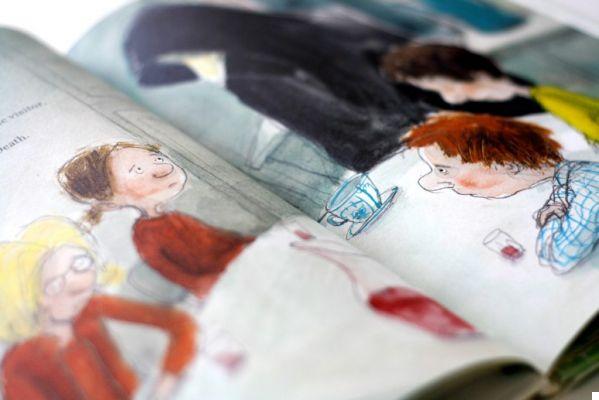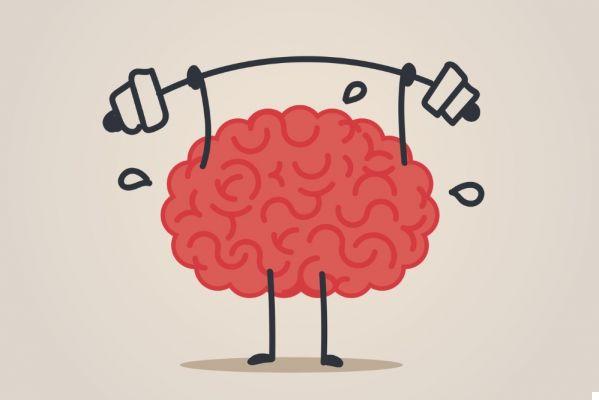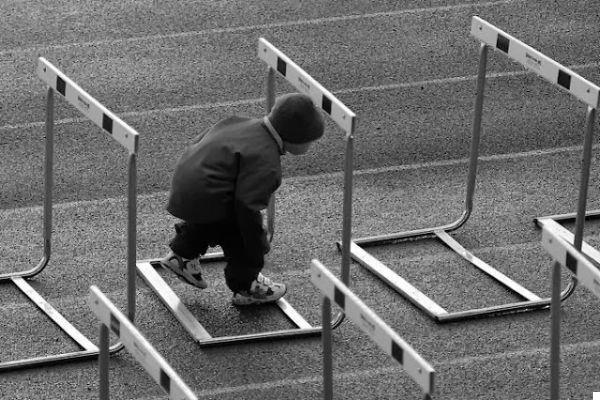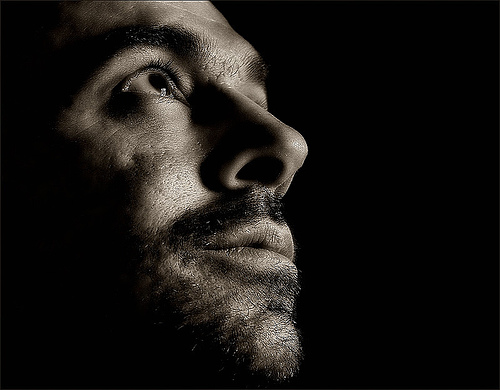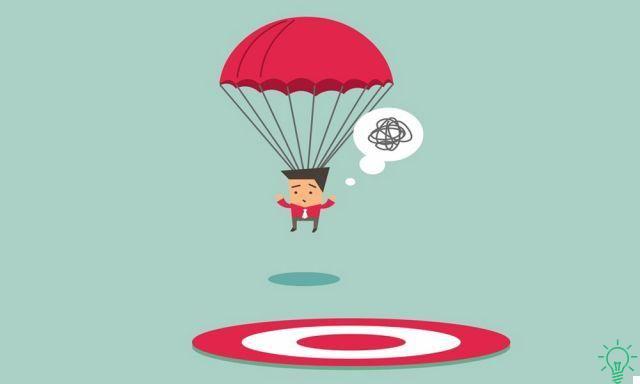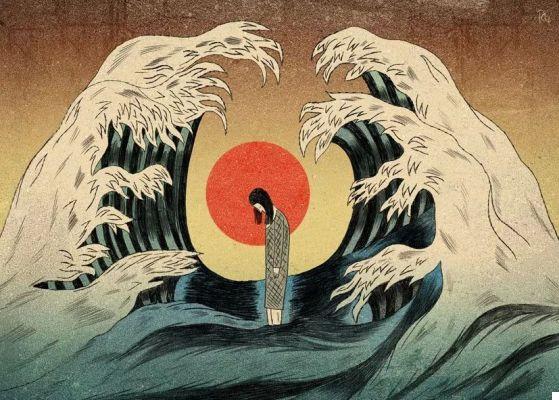
"The world breaks everyone and then many are strong at the broken points," said Ernest Hemingway. Unfortunately, there are people who never recover from the blows that life gives them, are unable to allow their wounds to heal, and they end up affecting both their present and their future.
Emotional pain can become much more resistant and intense than physical pain. Unfortunately, they educated us to avoid pain, rather than face it and use it as a stepping stone to growth. Therefore, it is not strange that when we face situations that cause us suffering, we activate strategies that make us feel even worse and delay emotional healing.
10 harmful ways of dealing with emotional pain
Emotional pain usually generates different responses. If we have not developed our psychological coping resources, we are likely to act automatically, repeating behaviors we have learned from our parents or those close to us. In these cases, it is very easy to fall into a cycle of negativity where we do not find the way out.
1. Escape. It results in an attempt to get away from the painful event by any means, from the situation that is causing us suffering. But since emotional pain has a large subjective component, there is no place in the world where we can escape from ourselves, so this avoidance strategy is usually not very effective.
2. Repression. It is a defense mechanism we activate when we believe we are unable to cope with emotional pain. It consists of trying to forget events so that they do not cause suffering. The problem, again, is that we can't just forget why that content will stay active, since we haven't processed it as part of our life narrative.
3. Denial. We have chosen to ignore suffering, acting as if it did not exist. Whenever we feel a pang of pain we tell ourselves that nothing is happening, that everything is going well. Obviously, denying reality will not make it disappear.
4. Projection. In this case, the emotional pain is projected onto others. When we put this mechanism into action we tell ourselves that we are fine, that it is others who suffer. We believe that by not recognizing suffering, it will disappear as if by magic.
5. Regression. When the emotional pain is very strong, we sometimes take refuge in earlier periods of our life, in which we feel much more comfortable and safe. Nostalgia, and the need to look back to feel good, often indicate that we are living in a present that we don't like. However, to overcome any kind of emotional pain it is essential to look forward, not to get stuck in the past.
6. Isolation. The deeper the wound, the more private the pain. Sometimes we don't find a way to express that suffering, so we end up isolating ourselves, experiencing it in private and allowing it to consume us. The problem is that isolation breeds loneliness and loneliness triggers depression, introducing us to a vicious circle that fuels suffering.
7. Rationalization. If we believe we are a deeply rational person who cannot be affected by emotions, we will reject emotional pain and seek rational causes that can comfort us. The problem is that this process often leads to self-blame, which generates even greater problems on an emotional level.
8. Relocation. In this case we will try to find a culprit outside of us, to whom we can attribute the responsibility for our pain. But the truth is, the search for the scapegoat prevents us from taking our share of responsibility and learning from experience. Therefore, that pain will have been useless.
9. Replacement. In this case, the strategy we choose to deal with emotional pain is to replace the thoughts that hurt us with others, to avoid suffering. In the beginning, there would be nothing wrong with this, the problem arises when the substitution of thoughts is done with the aim of denying the event or when we use naive statements such as "you are very well, absolutely nothing happens".
10. Repetition. It's one of the worst strategies we can use to deal with emotional pain because it involves reviewing what happened over and over again. Our mind is transformed into a cinema in which we continuously project the facts, trying to reconstruct even the smallest detail in an attempt to find consolation or an explanation. Obviously, this strategy only fuels the problem.
3 steps to overcome emotional pain
1. Pain is not your friend, but neither is it your enemy
The pain is within us, we cannot escape it, even if it is true that in some cases it is convenient to move away from the source that causes it. But it is always necessary to do a deep inner work.
Denying pain is not the best way to deal with suffering. Emotional pain is a symptom, a sign that something is wrong and we need to "fix it". Therefore, the first step to overcome it is to accept its existence and learn to live with it until it gradually disappears.
When we suffer from a traumatic experience, the painful traces remain etched in our brain. Neuroscientists at Harvard University asked people who had suffered a trauma to hear a description of what happened, in the meantime their brains were scanned. They discovered that when people were unable to move on, the amygdala, the core of fear and the visual cortex were activated, which meant that they were reliving these events in a particularly intense way.
On the contrary, in people who had managed to overcome the trauma, Broca's area, responsible for language, was activated. This means that these people transformed the painful event into a narrative experience that they incorporated into their life story, so as to be able to lighten it, at least in part, of its emotional impact.
In the beginning, the idea is to take note of the pain, as we could take note of the rest of the things around us, but trying not to dramatize it even more. For example: "I feel pain, I am aware of it and it is a normal response that will fade with each passing day". Of course, it's not just about accepting that pain, but all the feelings it brings with it, from anger to frustration.
2. Radical acceptance: extreme evils, extreme remedies
Psychologist William James wrote: "Accepting what has happened is the first step in overcoming the consequences of any misfortune". If we continue to mull over what happened, we will never be able to turn the page.
Tara Brach suggests that we practice radical acceptance, which consists in "clearly recognizing what we are feeling in the present so that we can face that experience with compassion". This means accepting everything that happens to us in life without resisting. It does not mean resigning, but assuming that certain things have happened and we cannot change them, instead of continually issuing value judgments that immerse us in a cycle of negativity, such as: "it shouldn't have happened that way", "it's not right" or " why me?"
When we accept an event, however painful, we are able to understand that this event is part of the past and that what affects our present are the thoughts and emotions we are feeding. Of course, it is not easy, acceptance does not come in one fell swoop, it is a process that requires arduous psychological work.
As you accept that what happened is in the past, your brain will process it until you are able to "disconnect" it from your present. When you accept that you cannot change what happened, the brain will stop looking for solutions, which means that you will stop ruminating and reliving the painful experience in your mind.
3. Reassemble the broken pieces that pain leaves behind
Adversity affects everyone, it is we who must learn not only to survive, but also to emerge strengthened from the experience. Being a survivor who carries emotional pain with you can become a real nightmare.
There are people who have the innate ability to mend broken pieces, they are resilient people who have extraordinary resources for emotional recovery. Others need to develop those skills. According to psychologist Guy Winch, "loss and trauma can tear our lives apart, devastate our relationships and subvert our very identity," but those pieces need to be put back together.
In fact, traumatic experiences that leave great suffering behind are so painful, among other reasons, because they tear apart our beliefs about the world, making us notice that it's not as safe a place as we thought. This discovery can be quite destabilizing, because it is not just about recovering from the blow, but it makes us aware that life can inflict even more painful blows on us.
To heal the wound we need time and deep introspective work. In fact, very often it's not about putting the broken pieces back in place, as we would a broken vase, but about finding new ways to make those pieces fit together. This means you may find new meaning in life, understand how this experience has made you stronger, or even feel encouraged to take on new projects. If you use pain as an opportunity to grow, instead of just seeing it as an annoying stone in your path, it will not have been in vain.







